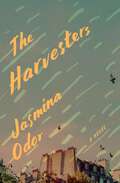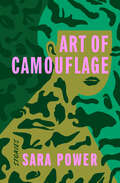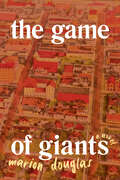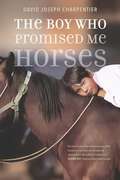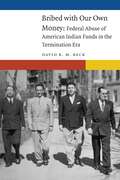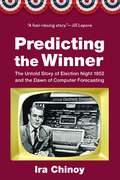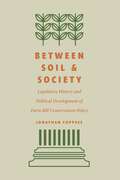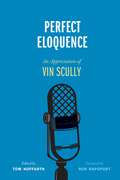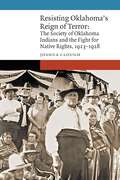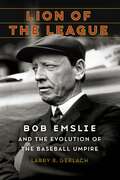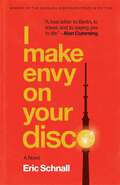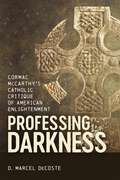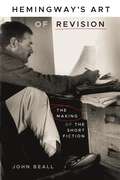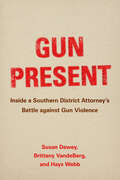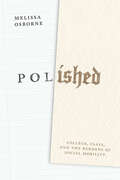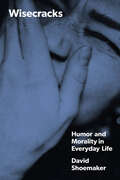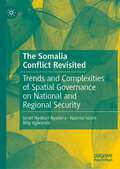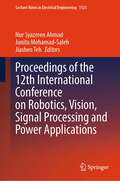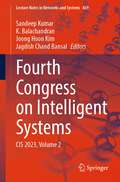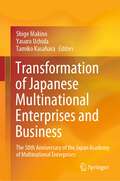- Table View
- List View
The Harvesters
by Jasmina OdorSet in Paris, an offbeat and sweet novel about family, loss and recovery, and the magic of memory.When Mira takes a trip to Paris with her nephew, Bernard, she expects to ride bicycles through the picturesque streets and admire the parks and courtyards. But the trip takes a different turn when the two travellers try to rescue an injured pigeon from the sidewalk, and their journey becomes one of addressing the losses that define their lives.Mira is recently divorced and facing a childless (or is it child-free?) future; Bernard has lost his first love and is grappling with his responsibility in the relationship's demise. Both are living in the shadows of war, immigration, and family disconnection as they prepare to travel on to Croatia, the country Mira left behind during the Yugoslav Wars.But for now: Paris. Mira and Bernard move through a city that feels both familiar and strange -- this is not merely the Paris of postcards, but a Paris of dubious one-star hotels and immigrants and labourers and taxi drivers and Eiffel Tower trinket vendors. And yet it's still a city that possesses an undeniable magic, where one might glimpse intriguing strangers or stumble upon past lovers.Thoughtful and witty, The Harvesters is infused with subtle beauty and the magic of memory.
Art of Camouflage
by Sara PowerA powerful debut about the lives of women and girls caught in the orbit of the military.Female recruits weathering toxic masculine environments. Military wives stretched thin across countless military moves, new cities and new selves. Military kids whose mercurial friendships flare and fade to the rhythm of their parent's career path. Throughout, this collection introduces us to characters who trespass beyond the boundaries of their own realities to discover who they are within someone else's narrative.Sara Power writes with insight and emotional precision about what it's like to be unmoored. Art of Camouflage is memorable at every turn, full of characters whose deepest motivations we recognize intrinsically as our own.
The Game of Giants
by Marion DouglasRose Drury and her partner, Lucy, have just learned that their son, Roger, is considered to be below average — at the third percentile rank in most areas, according to the pediatrician. Although Rose herself is a developmental psychologist and knows all of the "right" answers and "correct" things to do, she finds that she is all too human, struggling with the opinions, social pressures and off-handed cruelty that can beset the mother of a child who is different. With humour and desperation in equal measure, Rose sifts through her life history, looking for the definitive moment that could explain how she and her son got to this point. In this sparkling and empathetic novel, Marion Douglas digs into a young mother’s uncertainty, fear, and hard-won wisdom as she and her son — an odd and loveable giant of unpredictability — forge a path forward together.
The Boy Who Promised Me Horses
by David Joseph Charpentier&“He tried to outrun a train,&” Theodore Blindwoman told David Joseph Charpentier the night they found out about Maurice Prairie Chief&’s death. When Charpentier was a new teacher at St. Labre Indian School in Ashland, Montana, Prairie Chief was the first student he met and the one with whom he formed the closest bonds. From the shock of moving from a bucolic Minnesota college to teach at a small, remote reservation school in eastern Montana, Charpentier details the complex and emotional challenges of Indigenous education in the United States. Although he intended his teaching tenure at St. Labre to be short, Charpentier&’s involvement with the school has extended past thirty years. Unlike many white teachers who came and left the reservation, Charpentier has remained committed to the potentialities of Indigenous education, motivated by the early friendship he formed with Prairie Chief, who taught him lessons far and wide, from dealing with buffalo while riding a horse to coping with student dropouts he would never see again. Told through episodic experiences, the story takes a journey back in time as Charpentier searches for answers to Prairie Chief&’s life. As he sits on top of the sledding hill near the cemetery where Prairie Chief is buried, Charpentier finds solace in the memories of their shared (mis)adventures and their mutual respect, hard won through the challenges of educational and cultural mistrust.
Bribed with Our Own Money: Federal Abuse of American Indian Funds in the Termination Era (New Visions in Native American and Indigenous Studies)
by David R. BeckIn Bribed with Our Own Money David R. M. Beck analyzes the successes and failures of Indigenous nations&’ opposition to federal policy in the 1950s and 1960s. Focusing on case studies from six Native nations, Beck recounts how the U.S. government coerced American Indian nations to accept termination of their political relationship with the United States by threatening to withhold money that belonged to the tribes. Termination was the continuation—and, federal officials hoped, the culmination—of more than a century of policy initiatives intended to end the political relationship between Indian tribal nations and the federal government. Termination was also intended to assimilate American Indian individuals into the country&’s social and economic culture and to remove the remainder of reservation lands from federal trust. American Indians hoped to gain greater opportunities of self-governance and self-determination, but they wanted to do so under the protection of the federal trust relationship.Bribed with Our Own Money analyzes both successful and unsuccessful efforts of Native nations to oppose this policy within the larger context of long-standing federal abuse of tribal funds. It is the first book to view federal termination efforts grounded in bribery for what they were: a form of coercion.
Predicting the Winner: The Untold Story of Election Night 1952 and the Dawn of Computer Forecasting
by Ira ChinoyThe history of American elections changed profoundly on the night of November 4, 1952. An outside-the-box approach to predicting winners from early returns with new tools—computers—was launched live and untested on the newest medium for news: television. Like exhibits in a freak show, computers were referred to as &“electronic brains&” and &“mechanical monsters.&” Yet this innovation would help fuel an obsession with numbers as a way of understanding and shaping politics. It would engender controversy down to our own time. And it would herald a future in which the public square would go digital. The gamble was fueled by a crisis of credibility stemming from faulty election-night forecasts four years earlier, in 1948, combined with a lackluster presentation of returns. What transpired in 1952 is a complex tale of responses to innovation, which Ira Chinoy makes understandable via a surprising history of election nights as venues for rolling out new technologies, refining methods of prediction, and providing opportunities for news organizations to shine. In Predicting the Winner Chinoy tells in detail for the first time the story of the 1952 election night—a night with continuing implications for the way forward from the dramatic events of 2020–21 and for future election nights in the United States.
Between Soil and Society: Legislative History and Political Development of Farm Bill Conservation Policy
by Jonathan CoppessThe United States spends approximately $5 billion each year on federal programs designed to conserve natural resources and address the environmental consequences of modern agricultural production. Like farm policy, agricultural conservation policy is rooted in the Roosevelt administration&’s New Deal efforts of the 1930s. Farm conservation policy has waxed and waned since then, related to fluctuating economic and environmental concerns. In Between Soil and Society Jonathan Coppess traces the history and development of U.S. conservation policy, especially as it compares to and interacts with the development of farm policy. By answering questions about the differences in political support and development for these similar policy regimes, with efforts to apply legal and political theory to understand the differences, Coppess considers the implications of climate change and lessons for future policy development. One of the few books to make sense of the legal and economic analysis of agricultural conservation policy, Between Soil and Society provides a window into larger issues of American politics, governance, and policy development.
Perfect Eloquence: An Appreciation of Vin Scully
by Ron RapoportWhen Vin Scully passed away in 2022, the city of Los Angeles lost its soundtrack. If you were able to deliver a eulogy for him, what might it include? What impact did he have on you? What do you carry forward from his legacy? Sixty-seven essayists—one representing each season of his career calling games for the Los Angeles Dodgers, from 1950 through 2016—reflect on the ways his professional and private life influenced them. The contributions include a range of stories and remembrances from those who knew and followed him. The consensus of the contributions is that Scully&’s actions spoke louder than his well-recognized words. This collection includes fellow broadcasters as well as historians, players, journalists, celebrities, and others connected to the game of baseball, with each piece introduced by sports journalist Tom Hoffarth. Readers can consider Scully&’s life through common themes: his sincerity, his humility, his professionalism, his passion for his faith, his devotion to his family, his insistence on remembering and giving context to important moments in the history of not just the game but the world in general, all wrapped up in a gift for weaving storytelling with accurate reporting, fellowship with performance art, humor, and connection.
Resisting Oklahoma's Reign of Terror: The Society of Oklahoma Indians and the Fight for Native Rights, 1923–1928 (New Visions in Native American and Indigenous Studies)
by Dr. Joshua CloughThe oil and natural gas boom in pre–World War I Oklahoma brought unbelievable wealth to thousands of tribal citizens in the state on whose lands these minerals were discovered. However, as Angie Debo recognizes in her seminal study of the period, And Still the Waters Run, and, more recently, as David Grann does in Killers of the Flower Moon, this affluence placed Natives in the crosshairs of unscrupulous individuals. As a result, this era was also marked by two of the most heinous episodes of racial violence in the state&’s history: the Tulsa Race Massacre of 1921 and the Osage Murders between 1921 and 1925. In Resisting Oklahoma&’s Reign of Terror Joshua Clough details the responses of one largely forgotten Native organization—the Society of Oklahoma Indians (SOI)—to the violence and pillaging of tribal resources during the 1920s. Clough provides historical understanding of its formation and its shared values of intertribal unity, Native suffrage, and protection of Native property. He also reveals why reform efforts were nearly impossible in 1920s Oklahoma and how this historical perspective informs today&’s conflicts between the state and its Indigenous inhabitants. Through this examination of the SOI, Clough fills the historiographic gap regarding formal Native resistance between the dissolution of the national Society of American Indians in 1923 and the formation of the National Congress of American Indians in 1944. Dismissed or overlooked for a century as an inconsequential Native activist organization, the history of the SOI, when examined carefully, reveals the sophistication and determination of tribal members in their struggle to prevent depredations on their persons and property.
They Came but Could Not Conquer: The Struggle for Environmental Justice in Alaska Native Communities
by Diane J. PurvisAs the environmental justice movement slowly builds momentum, Diane J. Purvis highlights the work of Indigenous peoples in Alaska&’s small rural villages, who have faced incredible odds throughout history yet have built political clout fueled by vigorous common cause in defense of their homes and livelihood. Starting with the transition from Russian to American occupation of Alaska, Alaska Natives have battled with oil and gas corporations; fought against U.S. plans to explode thermonuclear bombs on the edge of Native villages; litigated against political plans to flood Native homes; sought recompense for the Exxon Valdez oil spill disaster; and struggled against the federal government&’s fishing restrictions that altered Native paths for subsistence. In They Came but Could Not Conquer Purvis presents twelve environmental crises that occurred when isolated villages were threatened by a governmental monolith or big business. In each, Native peoples rallied together to protect their land, waters, resources, and a way of life against the bulldozer of unwanted, often dangerous alterations labeled as progress. In this gripping narrative Purvis shares the inspiring stories of those who possessed little influence over big business and regulations yet were able to protect their traditional lands and waterways anyway.
Lion of the League: Bob Emslie and the Evolution of the Baseball Umpire
by Larry R. GerlachRobert Dean Emslie (1859–1943) spent fifty-six of his eighty-four years in professional baseball—eight as a player and forty-nine as an umpire. When arm problems ended his career as a Major League pitcher, he turned to umpiring, serving in that capacity for thirty-five seasons, then as an umpire supervisor for thirteen years. His longevity is all the more remarkable considering he toiled during the three most contentious and difficult decades umpires ever faced: the years from 1890 to 1920, when baseball transitioned from amateur to professional sport and from regional business to commercial entertainment industry. Emslie endured the rough-and-tumble umpire-baiting 1890s, the Deadball era, injuries from thrown and batted balls, physical and verbal assaults from players and fans, and criticism in the press. Among his most notable games, he called four no-hitters and worked as the base umpire in the famous Merkle&’s Boner game between the New York Giants and the Chicago Cubs at the Polo Grounds in 1908. He often clashed with Giants manager John McGraw, who nicknamed him &“Blind Bob.&” Yet he was widely praised by players and his peers. Honus Wagner, the great Pittsburgh shortstop, ranked Emslie the best National League umpire he had seen during his twenty-year career. Umpires Bill McGowan and Billy Evans respectively regarded him as &“the greatest base umpire of all time&” and &“one of the greatest umpires the game ever produced.&” Emslie was also the acknowledged master of baseball&’s rules such that National League presidents regularly consulted with him on controversial calls and protests. Emslie accepted a position as the chief of National League umpires, serving as an adviser to the National League president.Lion of the League is the biography of an umpire whose career spanned the formative years of modern baseball.
Saying No to Hate: Overcoming Antisemitism in America
by Norman H. FinkelsteinSaying No to Hate grounds readers contextually in the history of antisemitism in America by emphasizing the legal, political, educational, communal, and other strategies American Jews have used through the centuries to address high-profile threats. Norman H. Finkelstein shows how antisemitism has long functioned in America in systemic, structural, and interpersonal ways, from missionaries, the KKK, and American Nazis to employment discrimination, social media attacks, and QAnon. He explains how historic antisemitic events such as General Ulysses S. Grant&’s General Order No. 11 (1862); the Massena, New York blood libel (1928); and the mass shooting at the Tree of Life synagogue (2018) galvanized the Jewish community. Finkelstein shines light on Jews such as Louis Brandeis and Admiral Hyman Rickover who succeeded despite discrimination and on individuals and organizations that have tackled legal and security affairs, from the passage of Maryland&’s Jew Bill (1826) to groups helping Jewish institutions better protect themselves from active shooter threats. Far from a victim narrative, Saying No to Hate is as much about Jewish resilience and ingenuity as it is about hatred. Engaging high school students and adults with personal narratives, it prepares each of us to recognize, understand, and confront injustice and hatred today, in the Jewish community and beyond.
I Make Envy on Your Disco: A Novel (Zero Street Fiction)
by Eric SchnallWinner of the Barbara DiBernard Prize in Fiction It&’s the new millennium and the anxiety of midlife is creeping up on Sam Singer, a thirty-seven-year-old art advisor. Fed up with his partner and his life in New York, Sam flies to Berlin to attend a gallery opening. There he finds a once-divided city facing an identity crisis of its own. In Berlin the past is everywhere: the graffiti-stained streets, the candlelit cafés and techno clubs, the astonishing mash-up of architecture, monuments, and memorials. A trip that begins in isolation evolves into one of deep connection and possibility. In an intensely concentrated series of days, Sam finds himself awash in the city, stretched in limbo between his own past and future—in nightclubs with Jeremy, a lonely wannabe DJ; navigating a flirtation with Kaspar, an East Berlin artist he meets at a café; and engaged in a budding relationship with Magda, the enigmatic and icy manager of Sam&’s hotel, whom Sam finds himself drawn to and determined to thaw. I Make Envy on Your Disco is at once a tribute to Berlin, a novel of longing and connection, and a coming-of-middle-age story about confronting the person you were and becoming the person you want to be.
Professing Darkness: Cormac McCarthy's Catholic Critique of American Enlightenment
by D. Marcel DeCosteProfessing Darkness confirms the centrality of Catholic thought, imagery, and sacrament to the spiritual and ethical outlook of the work of Cormac McCarthy and, more specifically, its consistent assessment of Enlightenment values and their often-catastrophic realization in American history. D. Marcel DeCoste surveys McCarthy’s fiction from both his Tennessee and Southwest periods, with chapters devoted to eight of his published novels—from Outer Dark to The Road—and a conclusion that examines the writer’s screenplay for The Counselor and the duology of The Passenger and Stella Maris. DeCoste’s attentive, wide-ranging interpretations demonstrate that McCarthy’s work mounts a sustained critique of core Enlightenment ideals and their devastating results in the American context, especially for Indigenous peoples, the environment, the viability of community, and the integrity of a self irreducible to the status of a commodity. Professing Darkness shows that Roman Catholic understandings of Penance and Eucharist, along with specific Catholic teachings—such as those regarding the goodness of Creation, the nature of evil, the insufficiency of the self, and the radical invitation to conversion—enable McCarthy’s revelatory engagement with American Enlightenment. An important contribution to the ever-expanding critical literature on a towering contemporary author, Professing Darkness offers an innovative reading of both the spiritual and political valences of McCarthy’s writing.
Hemingway's Art of Revision: The Making of the Short Fiction
by John BeallIn Hemingway’s Art of Revision, John Beall analyzes more than a dozen pieces of the author’s celebrated short fiction, with a focus on manuscripts and typescripts, as part of a broader examination of how Ernest Hemingway crafted his distinctive prose through a rigorous process of revision. Ranging from two vignettes in the first version of In Our Time through early touchstones such as “Indian Camp” and “The Killers” to later masterpieces including “Fathers and Sons,” Beall’s study considers the modernist influences, aesthetic choices, and experimental effects that characterized Hemingway’s approach to the short story. Revisions to “Big Two-Hearted River,” for example, were not simply cuts and omissions, but involved adding paragraphs to slow down the narrative and represent Nick Adams’s careful observations of fish as he watched their shadows on the river. For “A Way You’ll Never Be,” Hemingway’s revisions developed Nick’s interior monologues, manic lecture about grasshoppers, and wacky sense of humor to show the character restoring a sense of emotional balance despite his traumatic memories of being wounded.By drawing attention to the meticulous omissions, additions, and replacements that shaped these texts, Beall reveals how extensively and richly Hemingway revised his drafts. Hemingway’s Art of Revision gives a detailed view of a great prose stylist at work.
Commentaries on the Cantatas of Johann Sebastian Bach: A Selective Guide
by Hans-Joachim SchulzeInternationally recognized Bach authority Hans-Joachim Schulze authored a 225-part series on the cantatas of Johann Sebastian Bach. In this collection, James A. Brokaw II translates a selection of the essays, illuminating a wide range of biographical and cultural features of Bach’s life and creative milieu. Schulze’s lively and engaging discussions provide a wealth of rewarding insights and perspectives focusing on individual cantatas, their texts, and the questions of chronology and context that attend them. The University of Illinois Press has paired the volume with a special web-based companion overseen by the translator and hosted by the Illinois Open Publishing Network. This online resource includes Brokaw’s translations of all 225 of Schulze’s essays alongside digital tools for searching, sorting, and bundling the commentaries according to date of composition, position within the liturgical church year sequence, and librettist.
Gun Present: Inside a Southern District Attorney's Battle against Gun Violence
by Susan DeweyGun Present takes us inside the everyday operations of the law at a courthouse in the Deep South. Illuminating the challenges accompanying the prosecution of criminal cases involving guns, the three coauthors—an anthropologist, a geographer, and a district attorney—present a deeply human portrait of prosecutors’ work. Built on an immersive, community-based participatory partnership between researchers and criminal justice professionals, Gun Present chronicles how a justice assemblage comprising institutional structures and practices, relationships and roles, and individual moral and emotional worlds informs the day-to-day administration of justice. Weaving together in-depth interviews, quantitative analysis of more than a thousand criminal cases, analysis of trial transcripts, and over a year of ethnographic observations, Gun Present provides a model for scholar-practitioner collaborations.
Polished: College, Class, and the Burdens of Social Mobility
by Melissa OsborneAn illuminating look at the emotional costs of mobility faced by first-generation and low-income college students. While college initiates a major transition in all students’ lives, low-income and first-generation students attending elite schools are often entering entirely new worlds. Amid the financial and academic challenges of adapting to college, their emotional lives, too, undergo a transformation. Surrounded by peers from different classes and cultural backgrounds, they are faced with an impossible choice: turn away from their former lives to blend in or stay true to themselves and remain on the outside. An ethnography that draws on in-depth interviews with one hundred and fifty first-generation and low-income students across eighteen elite institutions, Polished uncovers the hidden consequences of the promise of social mobility in today’s educational landscape. Sociologist Melissa Osborne reveals how the very support designed to propel first-generation students forward can unexpectedly reshape their identities, often putting them at odds with their peers and families. Without direct institutional support, this emotional journey can lead to alienation, mental health challenges, poor academic outcomes, and difficult choices between upward mobility or maintaining authenticity and community. Whether you're an educator, advocate, or student, Polished provides a powerful perspective on the uncharted challenges of social mobility and personal identity during college.
Wisecracks: Humor and Morality in Everyday Life
by David ShoemakerA philosopher’s case for the importance of good—if ethically questionable—humor. A good sense of humor is key to the good life, but a joke taken too far can get anyone into trouble. Where to draw the line is not as simple as it may seem. After all, even the most innocent quips between friends rely on deception, sarcasm, and stereotypes and often run the risk of disrespect, meanness, and harm. How do we face this dilemma without taking ourselves too seriously? In Wisecracks, philosopher David Shoemaker examines this interplay between humor and morality and ultimately argues that even morally suspect humor is an essential part of ethical life. Shoemaker shows how improvised “wisecracks” between family and friends—unlike scripted stand-up, sketches, or serials—help us develop a critical human skill: the ability to carry on and find the funny in tragedy. In developing a new ethics of humor in defense of questionable gibes, Wisecracks offers a powerful case for humor as a healing presence in human life.
Renewable Energy Options for Power Generation and Desalination
by Ibrahim Dincer Mert TemizThis book examines simultaneous power generation and desalination driven by renewable energy systems. It covers all renewables, including solar, wind, geothermal, hydro, ocean and biomass as well as waste sources. This book also includes thermodynamic fundamentals, concepts, and system design, analysis and assessment studies, along with illustrative examples and case studies, for sustainable applications. It further provides an ample opportunity to learn more about cutting-edge technologies and newly developed systems for power generation and desalination.
The Somalia Conflict Revisited: Trends and Complexities of Spatial Governance on National and Regional Security
by Israel Nyaburi Nyadera Nazmul Islam Billy AgwandaThis book aims to examine how informality of spatial governance has influenced the evolution of the conflict in Somalia and the region. It not only reopens the debate over how the irregular conflicts can transcend national boundaries, but also presents the complexities of spatial governance on national and regional security. The book examines how socio-political and identity bonds play out in spatial governance sometimes resulting to informal control of vast national territories. The book argues that such informally governed spaces increase the level of security threat vulnerability at the national and regional levels. The book therefore adds to the existing literature which has not only to be dominated by discourses on the impact of identity on the conflict but also fall short of connecting the impact of informal spatial governance on security. Examining how informality in governance in one country can impact on the security of an entire region is a key consideration in emerging peacebuilding strategies.
Proceedings of the 12th International Conference on Robotics, Vision, Signal Processing and Power Applications (Lecture Notes in Electrical Engineering #1123)
by Nur Syazreen Ahmad Junita Mohamad-Saleh Jiashen TehThis book presents selected papers from the Proceedings of the International Conference 12th International Conference on Robotics, Vision, Signal Processing, and Power Applications ROVISP 2023, held in Penang, Malaysia, covering topic areas divided into the following tracks: (1) Robotics, Control, Mechatronics, and Automation; (2) Vision, Image and Signal Processing; (3) Telecommunication Systems and Applications; (4) Electronic Design and Applications; (5) Electrical Power, Energy, and Industrial Applications. Its content highlights state-of-the-art technologies adopted by the relevant industries which appeal to researchers and industrial practitioners working in the field.
Fourth Congress on Intelligent Systems: CIS 2023, Volume 2 (Lecture Notes in Networks and Systems #869)
by Sandeep Kumar K. Balachandran Joong Hoon Kim Jagdish Chand BansalThis book is a collection of selected papers presented at the Fourth Congress on Intelligent Systems (CIS 2023), organized by CHRIST (Deemed to be University), Bangalore, India, under the technical sponsorship of the Soft Computing Research Society, India, during September 4–5, 2023. It includes novel and innovative work from experts, practitioners, scientists, and decision-makers from academia and industry. It covers topics such as the Internet of Things, information security, embedded systems, real-time systems, cloud computing, big data analysis, quantum computing, automation systems, bio-inspired intelligence, cognitive systems, cyber-physical systems, data analytics, data/web mining, data science, intelligence for security, intelligent decision-making systems, intelligent information processing, intelligent transportation, artificial intelligence for machine vision, imaging sensors technology, image segmentation, convolutional neural network, image/video classification, soft computing for machine vision, pattern recognition, human-computer interaction, robotic devices and systems, autonomous vehicles, intelligent control systems, human motor control, game playing, evolutionary algorithms, swarm optimization, neural network, deep learning, supervised learning, unsupervised learning, fuzzy logic, rough sets, computational optimization, and neuro-fuzzy systems.
Transformation of Japanese Multinational Enterprises and Business: The 50th Anniversary of the Japan Academy of Multinational Enterprises
by Shige Makino Yasuro Uchida Tamiko KasaharaThe purpose of this book is to highlight how current successful Japanese multinational enterprises (MNEs) and companies have changed their business or business models in the past three decades. Japanese MNEs received a lot of attention from academia and industry during the 1980s and the early 1990s, and their factors for success have been compared with those of Western MNEs. Unfortunately, following the collapse of the “bubble economy” in the early 1990s, international business researchers and practitioners’ attention has turned away from Japan and its MNEs to emerging markets, notably the rapidly growing China.Japanese MNEs have faced the mature domestic economy and also have had to overcome many new challenges in the twenty-first century, such as rapid aging, depopulation, and response to new technologies. Japanese MNEs and companies today are being forced to respond to new business environments never seen in the past. The prerequisites for business activities have significantly changed from those of former Japanese companies and their management practices. Even in such a difficult situation, however, many Japanese MNEs and emerging companies have achieved steady growth and have succeeded by changing their business models. This book provides the reader with new directions for research and lessons by analyzing the challenges of Japanese multinational enterprises and emerging companies. The redirection of attention is expected to have a positive impact on the field of international business study and practice.
Bioactive Compounds in the Storage Organs of Plants (Reference Series in Phytochemistry)
by Hosakatte Niranjana Murthy Kee Yoeup Paek So-Young ParkThis book offers a comprehensive and authoritative review of bioactive substances found in plant underground stems, roots, rhizomes, corms, and tubers from all around the world. Tubers and starchy roots are plants that store edible starch content in underground stems, roots, rhizomes, corms, and tubers. They are a key source for both human and animal consumption and are rich in carbohydrates. They are widely used as industrial crops as well. Phytochemicals found in tubers and roots, such as phenolics, terpenoids, and alkaloids, have anti-inflammatory, anti-cancer, hypoglycemic, hypocholesterolemic, and antibacterial properties. Except for common potatoes, sweet potatoes, and cassava, the nutritional and health benefits of many tuberous crops have not yet been adequately investigated. This book sheds new insights into these topics by addressing several plant metabolites found in storage organs, which can be seen as scientifically neglected even though they have a high economic relevance as food and pharmaceutical sources. Divided into 6 parts, this book discusses how bioactive chemicals found in plant storage organs are synthesized and how their bioactive principles are specifically expressed in underground stems, roots, rhizomes, corms, and tubers. Additionally, each chapter includes background information on the plant, its parts, its nutritional makeup, chemical components, and biological functions. Given its breadth, the book appeals to a wide readership, from scholars through graduate and post-graduate students to professionals in the industry.
